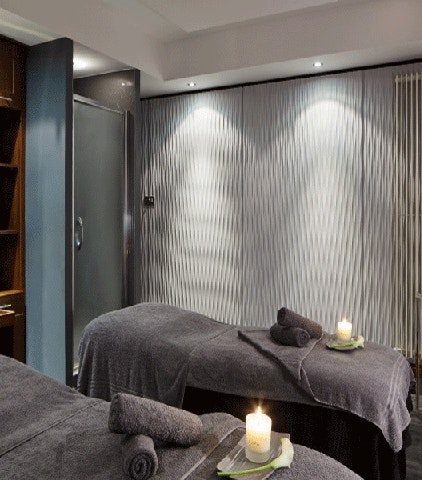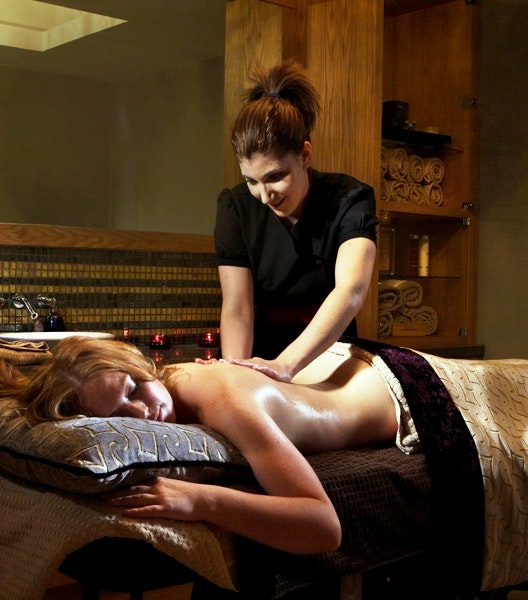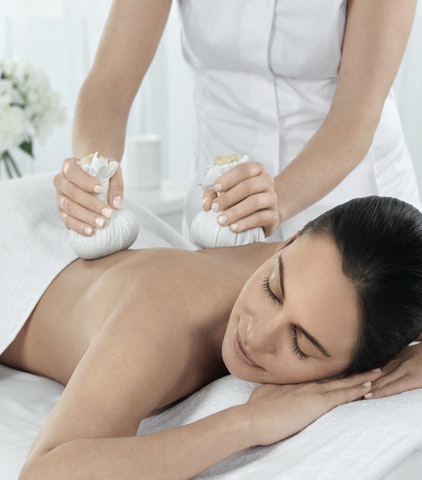
Pregnancy Massage Treatments
Massage may be the most welcome of all treatments included in our spa packages for pregnant women. However, it is also the one in which comfort and safety are the most crucial. In this guide, we cover everything you need to know about pregnancy massage.
We cover what a pregnancy massage is, the types available, and what to expect from your treatment. We also answer some pregnancy spa treatment FAQs
What is a pregnancy massage?
A pregnancy massage is a safe and gentle method of massage for a mum-to-be to enjoy some relaxation and alleviate pain and stress.
Expectant mothers have extra weight to carry and can suffer from lower back pain, swollen feet and calves, and other ailments. An indulgent, gentle massage can provide some much-needed respite.
A pregnancy massage should be carried out by a therapist who is trained in this speciality and understands how to correctly position and touch the client.
There are two types of targeted pregnancy massage, prenatal and postnatal, to support mum pre-birth and after birth. Some pregnancy treatments include foot soaks and massage of the arms, legs and scalp. For more, see our pregnancy spa guide.
What are the benefits of a pregnancy massage treatment?
The calming experience of a pregnancy massage can provide multiple health benefits, physical and psychological.
Simply experiencing a gentle touch can be a soothing antidote to anxiety and depression, and an effective way for an expectant mum to experience emotional support. A pregnancy massage can help to reduce stress, pain and discomfort during pregnancy. This can often result in better quality sleep and enhanced energy levels.
Types of pregnancy massage treatments
Depending on the spa venue you have chosen, you may be able to choose from the following selection of pregnancy massages:
Swedish massage
A Swedish massage is a classic spa treatment that will give you all the relaxation you need! The pressure can be as light or as firm as you like, perfect for unknotting your whole body and relieving any tension.
Deep-tissue massage
A deep-tissue massage treatment aims to work right into your knots, releasing toxins and lactic acid build-up in tired muscles, ligaments and tendons that may feel tense and inflamed. You must never have this type of massage in the abdominal area during pregnancy.
Shiatsu massage
Shiatsu massage therapy relies on the use of the fingers, thumbs and palms to apply pressure to various areas of the body. This massage can help to heal common ailments and conditions, and correct imbalances in the body.
What to expect during a pregnancy massage
The most common style of pregnancy massage offered is the Swedish massage. A typical Swedish-style massage usually lasts between 40 minutes for a back, neck and shoulders version or around 90 minutes for a full-body massage which includes the back, arms and legs.
Your massage therapist may use a variety of techniques, such as rolling and kneading the skin in a subtle sweeping action. In the full-body Swedish massage, your therapist will usually start by massaging your back and neck, then the legs, arms, hands and then moving on to the feet. This treatment sometimes includes a relaxing head massage (also known as a scalp massage, Indian head massage or Champissage).
Obviously, expectant mothers cannot lie on their front unless using specially adapted massage beds or pregnancy supports. Instead, they are usually carefully positioned to sit slightly upright or sideways (never completely flat and face-up – this is particularly important after week 30 of pregnancy) with pillows and padding for extra support. The products used will be gentle and safe for pregnant women’s skin.
To find out what your chosen massage treatment consists of, ask your massage therapist or enquire at the selected spa beforehand.
Essential oils and pregnancy
The more stimulating aromatherapy essential oils (basil, cedarwood, cinnamon bark, citronella, clary sage, jasmine, juniper, lemongrass, myrrh, peppermint, rockrose, rosemary, sage, thyme and vetiver) are contraindicated (not allowed) during pregnancy. Some of these are considered potent enough to influence foetal cell development and even to induce contractions.
Gentler soothing essential oils (diluted in a base or carrier oil), such as lavender, bergamot, frankincense, grapefruit, lemon, neroli, sandalwood and ylang-ylang are considered safe to use in the second trimester of a healthy pregnancy onwards. Peppermint oil, sometimes recommended in the first and second trimester to help curtail the nausea of morning sickness, is also thought to decrease milk production, so is best avoided as you approach your final trimester prior to breastfeeding.
If you want to use your favourite fragrance-free organic oil (coconut is good) during your massage, don’t be afraid to bring along a small bottle for your spa therapist to use – they should be happy to oblige. Just let the spa know ahead of time.
FAQs
Is it safe to have a pregnancy massage?
It is, as long as you are mindful of the restrictions in terms of positioning and essential oils. Be sure to let us at SpaSeekers know when you book your spa break how far along you are and also tell the spa on arrival. It is always advisable to seek your doctor’s advice ahead of time. If you have a high-risk pregnancy or other complications, a massage may be off-limits until you have safely given birth and you have medical clearance to have spa treatments.
Can I get massages throughout my whole pregnancy?
Some spas have policies in place about treating pregnant women. In general, the first and last trimesters are the crucial periods of pregnancy, so the second trimester is probably the best time to enjoy a pregnancy massage. In the first 12 weeks, you must avoid abdominal massage altogether. In your second and third trimesters, it is important not to lie on your back.
For other pregnancy spa treatments and more helpful advice, see our pregnancy spa guides.




